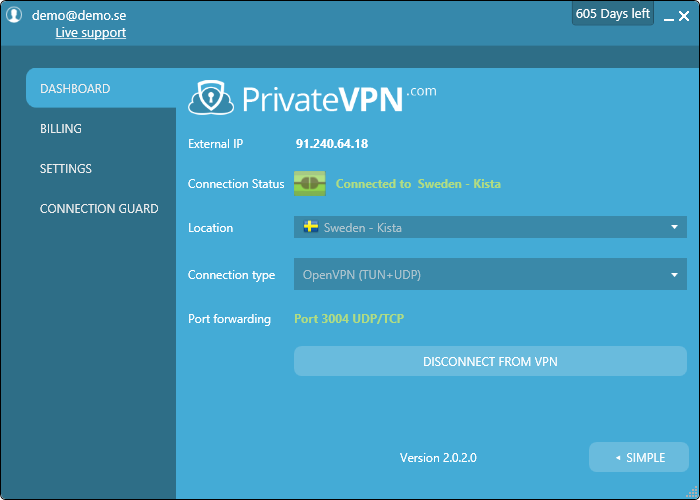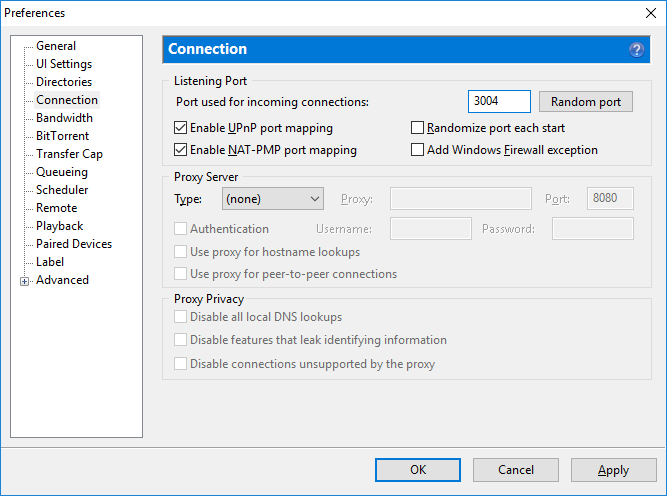Looking for the best VPN configuration for torrenting? Great. We will help you get the fastest speeds while maintaining safety.
It’s great to have fast speeds but if you get in trouble then what’s the point?
The first step to look at is where your VPN service comes from. Maybe from the US, maybe from the UK. And well, if that’s the case, that should be a red flag for you. Both these countries are known for leakages of information. VPN companies in those countries have been criticised for helping internet providers and parts of governments.
PrivateVPN is based in Sweden where logs cannot be stored legally, and if they can’t, then, as far as torrenting goes, you are 100% safe if using the right VPN for torrenting.
Port Forwarding is a crucial feature for this. That’s what makes torrenting fast if done right.

Go into the PrivateVPN client and look and just under the button that tells you to disconnect, you will see a section with port forwarding. Keep that number in your head.
You then need to open your torrenting client followed by going into connections and input the port that PrivateVPN gives you. That will give you the best VPN configuration for torrenting fast.

The VPN you are using is best to be P2P friendly and should also have no speed limits put on you.
The quality of your connection depends mostly on whether your VPN provider buys internet capacity from IP transit providers directly or from hosting sites. That’s the question that has to be answered.
PrivateVPN provides you with internet capacity that comes mostly from IP transit providers directly.
We mentioned that location matters as far as no log leaks, but there is also a lot of other things that matter as far as the best VPN for torrenting is concerned.
Encryption for instance. How easy is it to access what you are doing? That depends on encryption. PrivateVPN comes with 2048-bit encryption with AES-256 which is encryption on the level of the military. Of course, leaks happen at times, but that doesn’t mean that a leak should happen to you. That’s why PrivateVPN also comes with IPv6 Leak Protection to protect you from leaks. And if your VPN stops working on a rare occasion, your internet will turn off. You even have an option to terminate a certain app in that case.
If there’s any potential of exposure, why would you use a service for a VPN? Why not just download without a VPN?
If internet capacity isn’t mostly bought form IP transit providers directly, then what’s the point of a great configuration if you won’t be downloading at the highest speeds possible?
Those are things to consider, and that PrivateVPN takes care of.
Written by Michael Smolski.